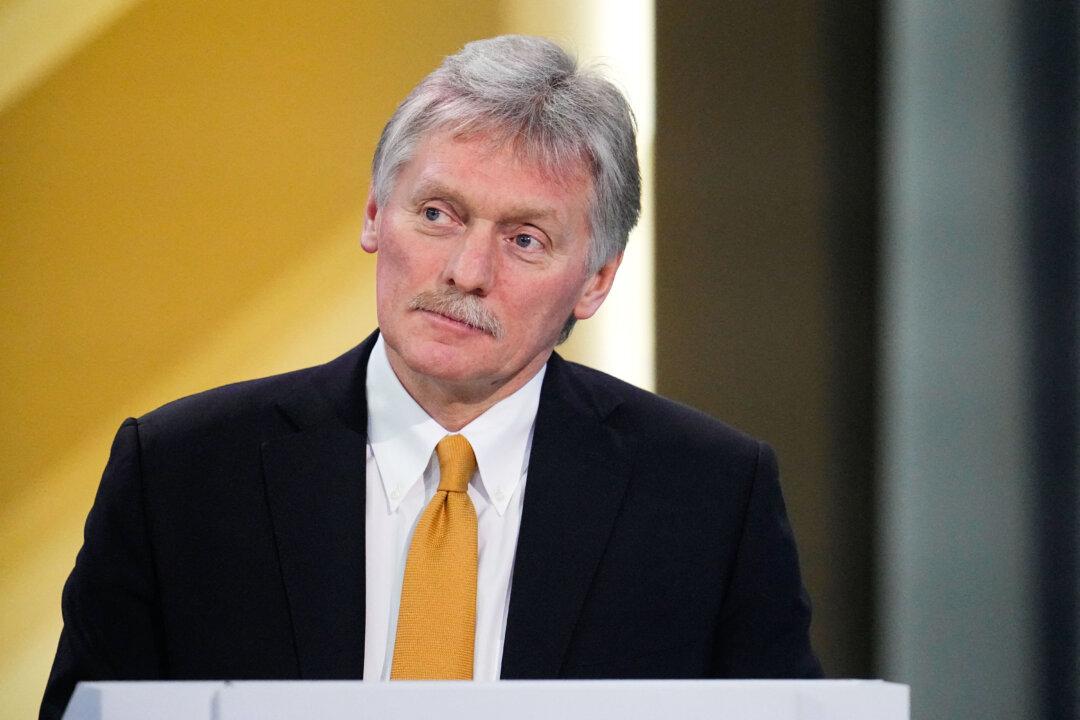The Russian government is “carefully” monitoring threats of sanctions that were recently suggested by U.S. President Donald Trump, a Kremlin spokesman said on Jan. 23.
Days after he was inaugurated earlier this week, Trump wrote on Truth Social that Russian President Vladimir Putin should move to end the nearly three-year-long war in Ukraine or face economic penalties.





